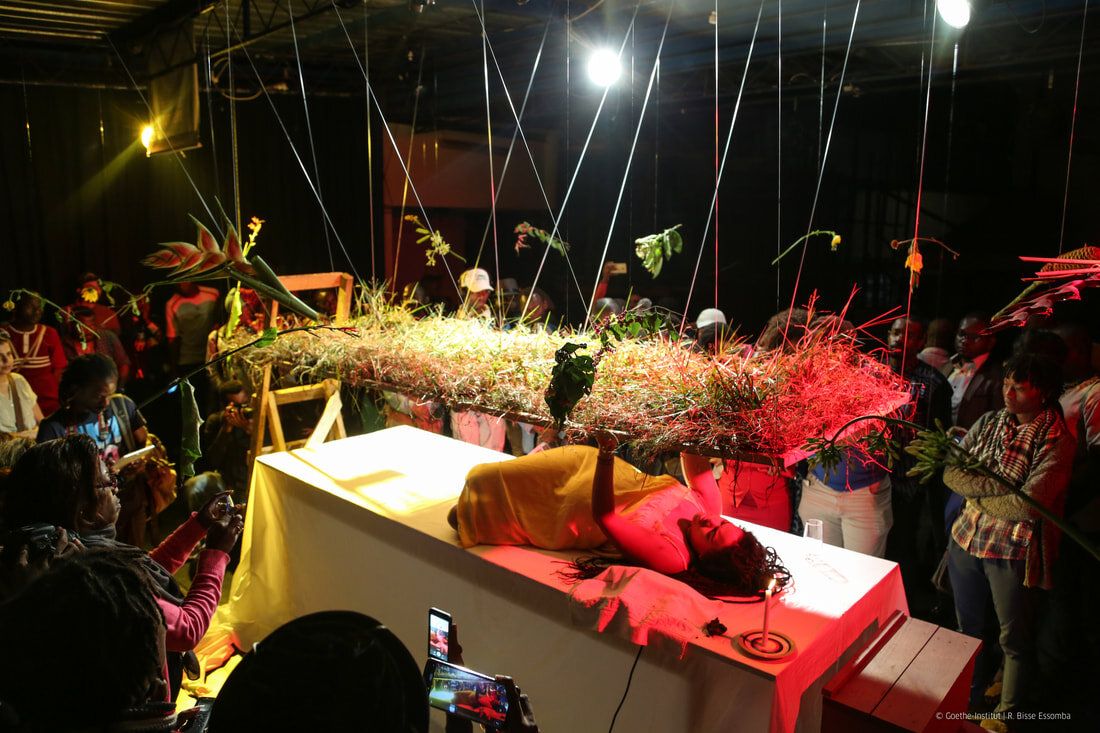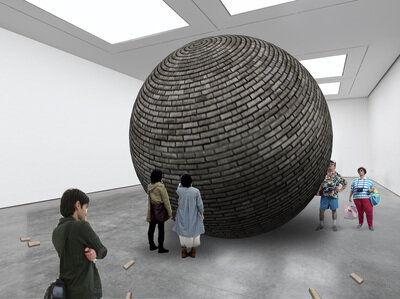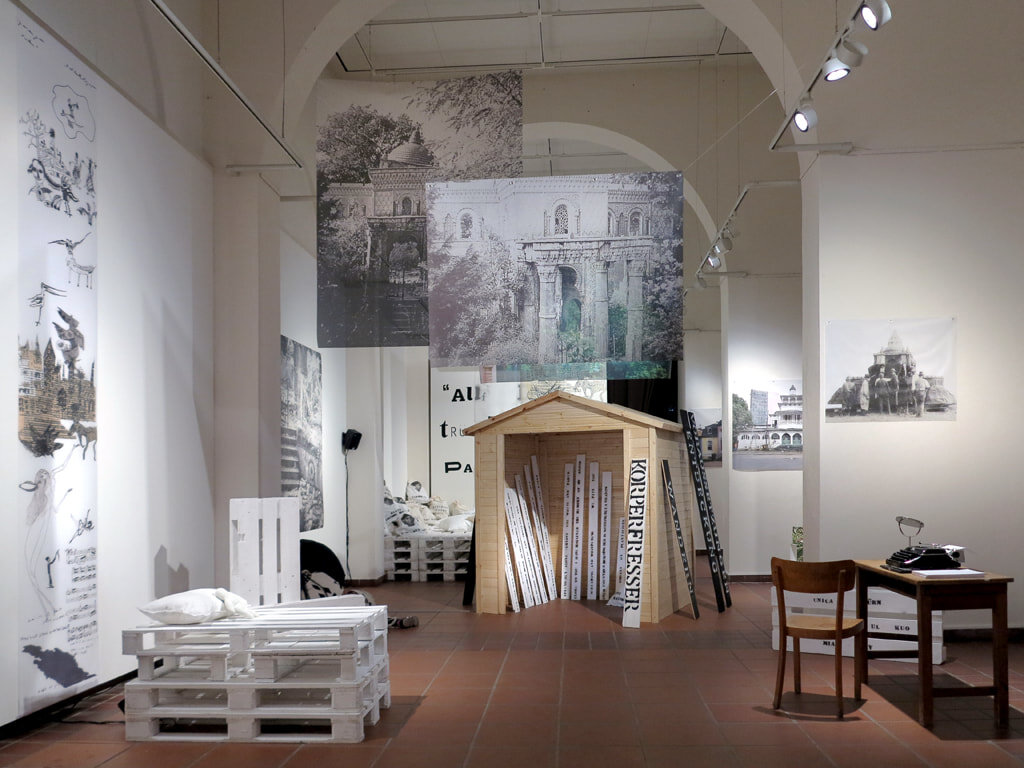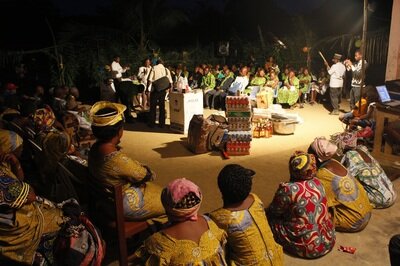Nathalie Anguezomo Mba Bikoro
Nathalie Anguezomo Mba Bikoro merges installations, sonic radio, live art performances, film & archives. Her work analyses processes of power & fictions in historical archives critically engaging in migrational struggles. She creates environments for untold narratives of resistance movements by African women and indigenous communities. Sedimented in narratives are testimonies of sonic nature archives, queering ecologies and postcolonial feminist experiences towards new monuments, reacting to the different tones of societies shared between delusions & ritual. She brings new investigations about the architectures of racisms in cities, the archeologies of urban spaces & economies of tradition systems by exposing the limitations of technologies as functional memory records. She is the recipient of several awards including Fondation Blachère & Afrique Soleil Mali for Best Artist Dakar Biennale (2012), IASPIS Swedish Arts Council (2018), Arts Council England (2016), Goethe Institut (2016) and many more.
Her critical process is informed by discourses of histories, archives and theories on postcolonialism, diaspora, migration, identities, afro & alter modernism and culture. Her work reveals and creates moments of synthesis and harmony between seemingly disparate, bodies of knowledge, cultural traditions and value systems. An exploration of creolised identity, heritage, memory and homeland, the artist investigates systems of colonial past & present, tyranny, dictates of gender, traditions and mythologies. She engages with communities contesting handcrafted economies of art, politics, literature, ecologies and philosophy combining alternative strategies in performance and practice to deconstruct social narratives and work on processes and engagement rather than final products that answer to political anecdotes of the way we live with "Archipelagoes for Drexyian Mermaids", "How To Turn A Mountain Into Pearls", "We Built The Kilimanjaro", "Black A(n)thena", "A History On Lateness", "Future Monuments" and "The Moor May Go". With her approach both educative and allegorical, Anguezomo Mba Bikoro highlights the different tones of a society shared between delusions and ritual.






